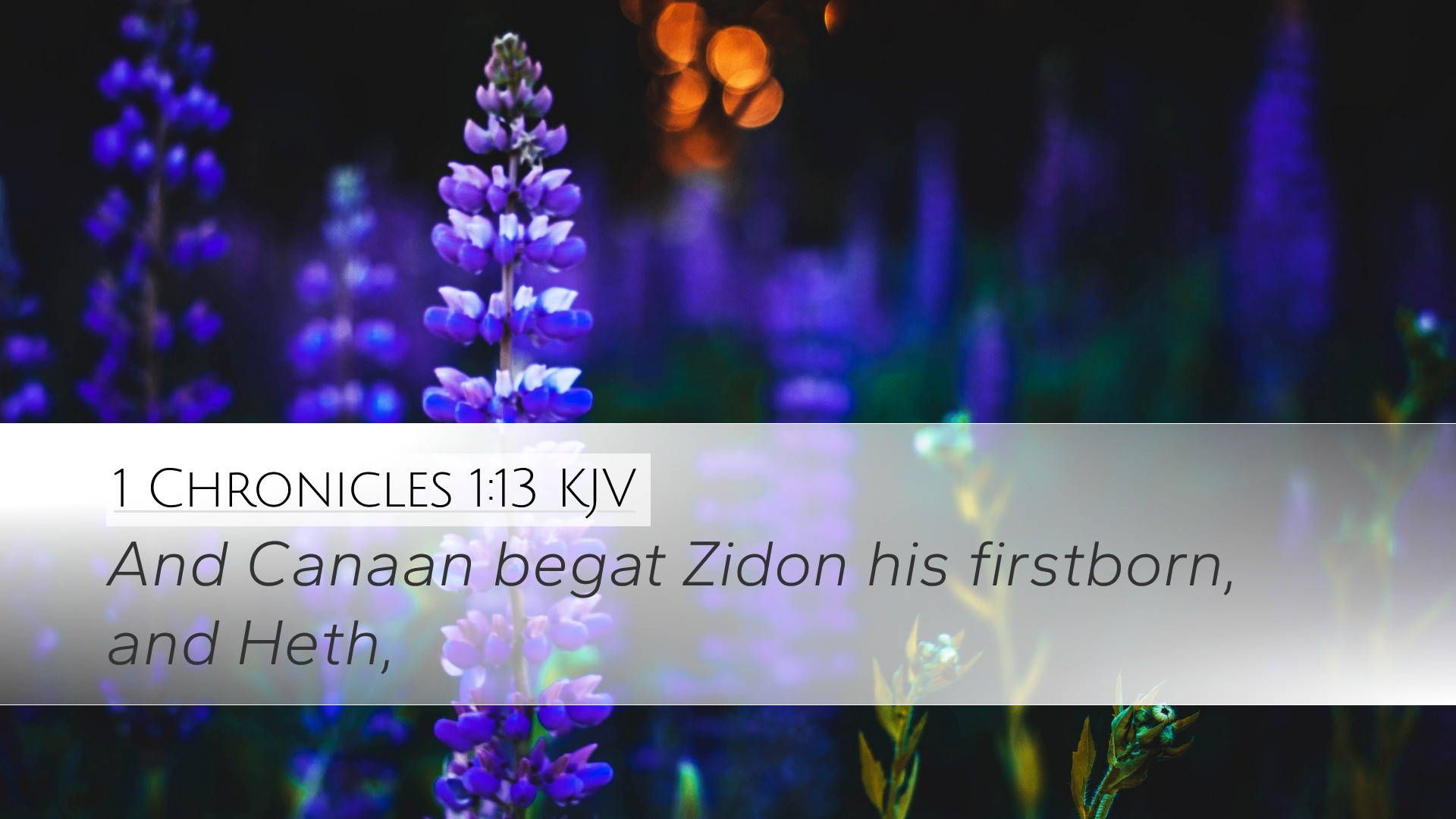Commentary on 1 Chronicles 1:13
Verse: "And Canaan begat Sidon his firstborn, and Heth," (1 Chronicles 1:13, KJV).
Introduction
This brief verse in 1 Chronicles marks a significant moment in biblical genealogy, establishing essential connections between various peoples in the ancient Near East. The lineage discussed in this verse is foundational for understanding both the historical and theological narratives that unfold in Scripture.
Genealogical Significance
The genealogy presented here is not merely a list; it serves an important role in establishing the identity and heritage of the Israelites. Matthew Henry emphasizes that genealogies in the Bible reflect God’s providential ordering and the unfolding of His divine plan through historical figures:
- Henry focuses on the role of genealogies as a means to trace the fulfillment of God's promises, particularly those concerning the covenant.
- This verse demonstrates the starting point of certain nations and peoples, underscoring the interconnectedness of tribes.
Canaan: The Ancestor of Many Nations
Canaan is a pivotal figure in biblical history, as the father of several nations that played a significant role in the saga of Israel. Albert Barnes discusses the implications of Canaan’s descendants:
- Sidon, as the firstborn, represents the Phoenician influence, known for their seafaring and trading prowess.
- Heth stands as the progenitor of the Hittites, known for their notable empire and interactions with the Israelites.
These descendants had interactions with the Israelites that are critical for understanding the historical context of Israel's later conquests and territorial claims.
The Role of Sidon
Sidon, mentioned first, is of particular importance. It was one of the foremost cities of Phoenicia and played a vital role in trade and commerce. Adam Clarke notes:
- Sidon symbolizes the richness of the Canaanite culture, which at times intersected with Israelite history.
- Understanding Sidon helps illuminate the influence of Canaanite worship practices and cultural elements that later impacted Israel.
The Legacy of Heth
Heth, as the father of the Hittites, introduces another layer of complexity. Barnes highlights the significance of the Hittites, who emerged as a powerful nation during ancient times:
- The Hittites had substantial agricultural and military prowess, affecting Israel’s historical landscape.
- Many interactions between the Israelites and the Hittites serve as cautionary tales in the biblical narrative.
Clarke notes that the Hittites were known for their extensive documentation and treaties, presenting an image of a highly organized society that would influence Israel's own governance.
Theological Implications
This verse also raises theological questions regarding lineage, destiny, and God’s sovereign choice. As Henry points out:
- The genealogies serve to display God's faithfulness to His covenants, linking the past with the promise of the future.
- Understanding the lineage of Canaan highlights the broader narrative of redemption, contrasting the disobedience of Canaan and the covenant faithfulness of Israel.
The repetitions of these genealogies remind believers of the messy realities of human history and the grace that operates within it.
Conclusion
In 1 Chronicles 1:13, we encounter a succinct yet profound moment that encapsulates the interwoven histories of nations and the overarching narrative of God's sovereign plan. The genealogies are reminders of God's providence and promises. For pastors, students, theologians, and Bible scholars, this verse invites further reflection on how interrelationships among nations and cultures shape the unfolding story of Scripture.
Ultimately, the verse encourages us to see beyond the names and dates to the divine orchestration at work in history and our lives through faith.


